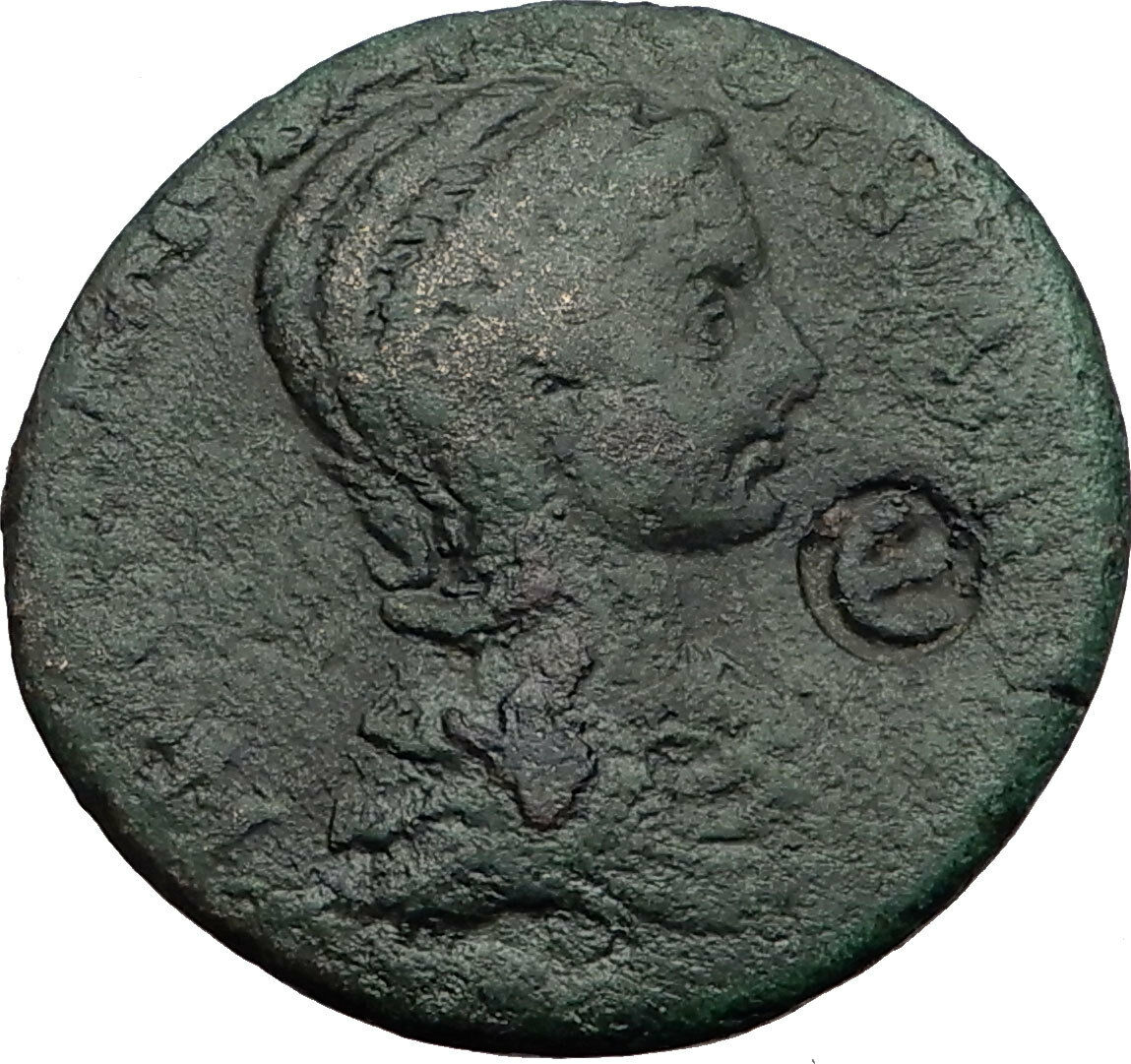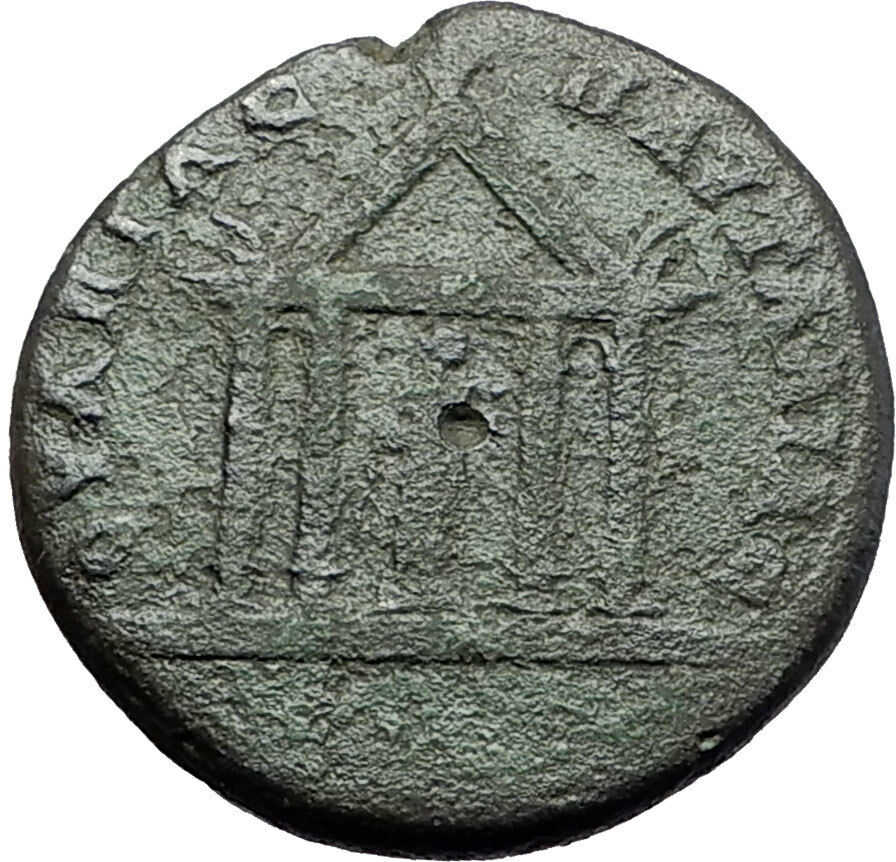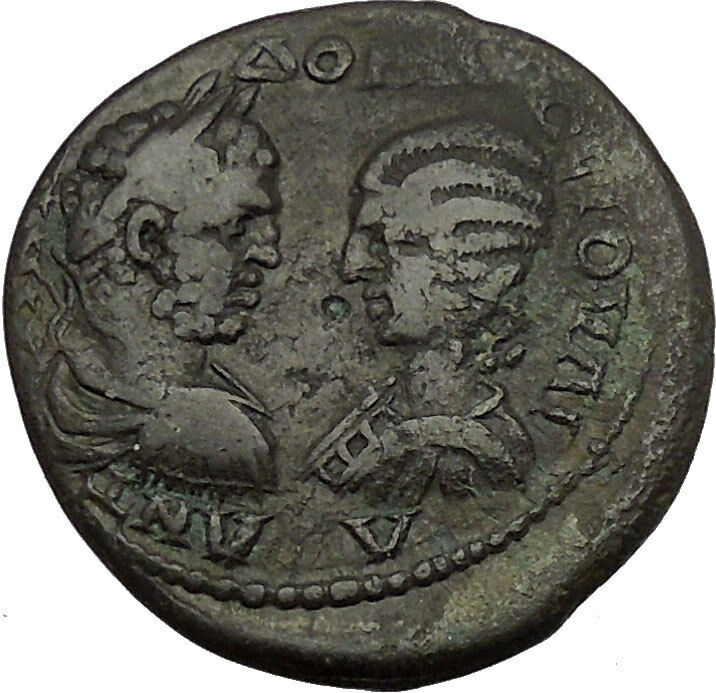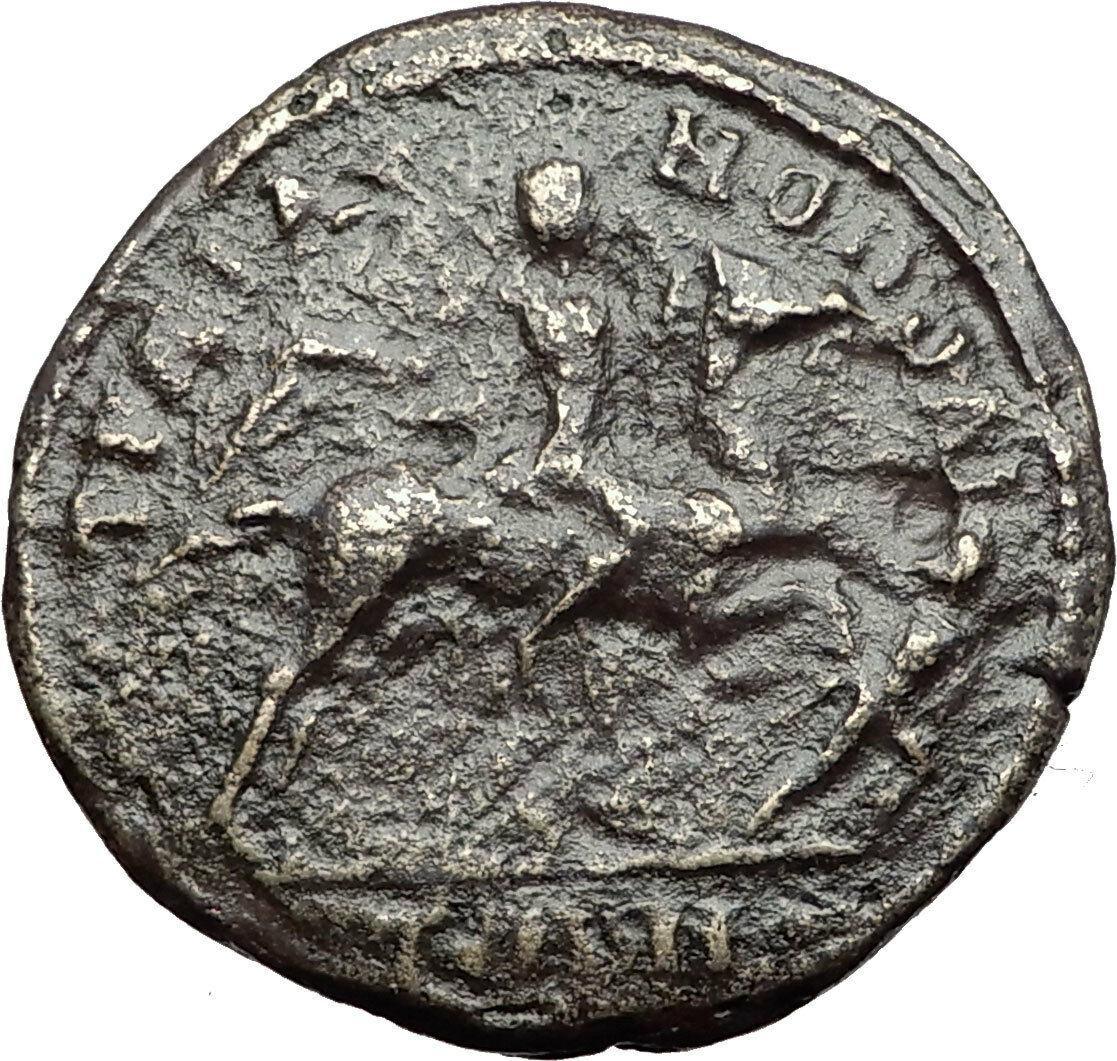|
Severus Alexander – Roman Emperor: 222-235 A.D.
Bronze 25mm (10.82 grams) of Marcianopolis in Moesia Inferior
Legate Tiberius Julius Festus
Reference: Moushmov 714 var.
AVT M AVP CЄVH AΛEΞANΔPOC, laureate, draped and cuirassed bust right.
VΠ TIB IOVΛ ФHCTOV MAPKIANOΠOΛITΩN, Eagle standing facing, wings spread, head left, with wreath in beak.
You are bidding on the exact item pictured, provided with a Certificate of Authenticity and Lifetime Guarantee of Authenticity.
Jupiter is usually thought to have originated as a sky god. His identifying implement is the thunderbolt, and his primary sacred animal is the eagle, which held precedence over other birds in the taking of auspices and became one of the most  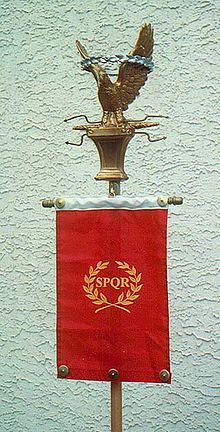 common symbols of the Roman army (see Aquila). The two emblems were often combined to represent the god in the form of an eagle holding in its claws a thunderbolt, frequently seen on Greek and Roman coins. As the sky-god, he was a divine witness to oaths, the sacred trust on which justice and good government depend. Many of his functions were focused on the Capitoline (“Capitol Hill”), where the citadel was located. He was the chief deity of the early Capitoline Triad with Mars and Quirinus. In the later Capitoline Triad, he was the central guardian of the state with Juno and Minerva. His sacred tree was the oak. The Romans regarded Jupiter as the equivalent of the Greek Zeus, and in Latin literature and Roman art, the myths and iconography of Zeus are adapted under the name Iuppiter. common symbols of the Roman army (see Aquila). The two emblems were often combined to represent the god in the form of an eagle holding in its claws a thunderbolt, frequently seen on Greek and Roman coins. As the sky-god, he was a divine witness to oaths, the sacred trust on which justice and good government depend. Many of his functions were focused on the Capitoline (“Capitol Hill”), where the citadel was located. He was the chief deity of the early Capitoline Triad with Mars and Quirinus. In the later Capitoline Triad, he was the central guardian of the state with Juno and Minerva. His sacred tree was the oak. The Romans regarded Jupiter as the equivalent of the Greek Zeus, and in Latin literature and Roman art, the myths and iconography of Zeus are adapted under the name Iuppiter.
An aquila, or eagle, was a prominent symbol used in ancient Rome, especially as the standard of a Roman legion. A legionary known as an aquilifer, or eagle-bearer, carried this standard. Each legion carried one eagle. The eagle was extremely important to the Roman military, beyond merely being a symbol of a legion. A lost standard was considered an extremely grave occurrence, and the Roman military often went to great lengths to both protect a standard and to recover it if lost; for example, see the aftermath of the Battle of the Teutoburg Forest, where the Romans spent decades attempting to recover the lost standards of three legions.
An aquila, or eagle, was a prominent symbol used in ancient Rome, especially as the standard of a Roman legion. A legionary known as an aquilifer, or eagle-bearer, carried this standard. Each legion carried one eagle.
The eagle was extremely important to the Roman military, beyond merely being a symbol of a legion. A lost standard was considered an extremely grave occurrence, and the Roman military often went to great lengths to both protect a standard and to recover it if lost; for example, see the aftermath of the Battle of the Teutoburg Forest, where the Romans spent decades attempting to recover the lost standards of three legions.

Marcianopolis, or Marcianople was an ancient Roman city in Thracia. It was located at the site of modern day Devnya, Bulgaria.
The city was so renamed by Emperor Trajan after his sister Ulpia Marciana, and was previously known as Parthenopolis. Romans repulsed a Gothic attack to this town in 267 (or 268), during the reign of Gallienus. Diocletian made it the capital of the Moesia Secunda province.
Valens made it his winter quarters in 368 and succeeding years, Emperor Justinian I restored and fortified it. In 587, it was sacked by the king of the Avars but at once retaken by the Romans. The Roman army quartered there in 596 before crossing the Danube to assault the Avars.
Between 893 and 972 it was one of the most important medieval cities in south-eastern Europe.
 Severus Alexander – Roman Emperor: 222-235 A.D. Severus Alexander – Roman Emperor: 222-235 A.D.
Caesar: 221-222 A.D. (under Elagabalus)
| Son of Julia Mamaea | Husband of Orbiana | Grandson of Julia Maesa | Nephew of Julia Soaemias | Cousin of Elagabalus | Second-cousin of Caracalla and Geta | Great-nephew of Septimius Severus and Julia Domna |
Marcus Aurelius Severus Alexander (October 1, 208–March 18, 235 AD), commonly called Alexander Severus, was the last Roman emperor (11 March 222–235) of the Severan dynasty. Alexander Severus succeeded his cousin, Elagabalus upon the latter’s assassination in 222 AD, and was ultimately assassinated himself, marking the epoch event for the Crisis of the Third Century—nearly fifty years of disorder, Roman civil wars, economic chaos, regional rebellions, and external threats that brought the Empire to near-collapse.
Alexander Severus was the heir apparent to his cousin, the eighteen-year-old Emperor who had been murdered along with his mother by his own guards—and as a mark of contempt, had their remains cast into the Tiber river. He and his cousin were both grandsons of the influential and powerful Julia Maesa, who had arranged for Elagabalus’ acclamation as Emperor by the famed Third Gallic Legion.
A rumor of Alexander’s death circulated, triggering the assassination of Elagabalus.
Alexander’s reign was marked by troubles. In military conflict against the rising Sassanid Empire, there are mixed accounts, though the Sassanid threat was checked. However, when campaigning against Germanic tribes of Germania, Alexander Severus apparently alienated his legions by trying diplomacy and bribery, and they assassinated him.
Life
Alexander was born with the name Marcus Julius Gessius Bassianus Alexianus. Alexander’s father, Marcus Julius Gessius Marcianus was a Syrian Promagistrate. His mother Julia Avita Mamaea was the second daughter of Julia Maesa and Syrian noble Julius Avitus and maternal aunt of Emperor Elagabalus. He had an elder sister called Theoclia and little is known about her. Alexander’s maternal great-aunt was empress Julia Domna (also Maesa’s younger sister) and his great-uncle in marriage was emperor Lucius Septimius Severus. Emperors Caracalla and Publius Septimius Geta, were his mother’s maternal cousins. In 221, Alexander’s grandmother, Maesa, persuaded the emperor to adopt his cousin as successor and make him Caesar and Bassianus changed his name to Alexander. In the following year, on March 11, Elagabalus was murdered, and Alexander was proclaimed emperor by the Praetorians and accepted by the Senate.
When Alexander became emperor, he was young, amiable, well-meaning, and entirely under the dominion of his mother. Julia Mamaea was a woman of many virtues, and she surrounded the young emperor with wise counsellors. She watched over the development of her son’s character and improved the tone of the administration. On the other hand, she was inordinately jealous. She also alienated the army by extreme parsimony, and neither she nor her son were strong enough to impose military discipline. Mutinies became frequent in all parts of the empire; to one of them the life of the jurist and praetorian praefect Ulpian was sacrificed; another compelled the retirement of Cassius Dio from his command.
On the whole, however, the reign of Alexander was prosperous until the rise, in the east, of the Sassanids. Of the war that followed there are various accounts. (Mommsen leans to that which is least favourable to the Romans). According to Alexander’s own dispatch to the senate, he gained great victories. At all events, though the Sassanids were checked for the time, the conduct of the Roman army showed an extraordinary lack of discipline. The emperor returned to Rome and celebrated a triumph in 233.
The following year he was called to face German invaders in Gaul, who had breached the Rhine frontier in several places, destroying forts and over-running the countryside. Alexander mustered his forces, bringing legions from the eastern provinces, and crossed the Rhine into Germany on a pontoon bridge. Initially he attempted to buy the German tribes off, so as to gain time. Whether this was a wise policy or not, it caused the Roman legionaries to look down on their emperor as one who was prepared to commit unsoldierly conduct. Herodian says “in their opinion Alexander showed no honourable intention to pursue the war and preferred a life of ease, when he should have marched out to punish the Germans for their previous insolence”. These circumstances drove the army to look for a new leader. They chose Gaius Iulius Verus Maximinus, a Thracian soldier who had worked his way up through the ranks.
Following the nomination of Maximinus as emperor, Alexander was slain (on either March 18 or March 19, 235), together with his mother, in a mutiny of the PrimigeniaLegio XXII . These assassinations secured the throne for Maximinus.
The death of Alexander is considered as the end of the Principate system established by Augustus. Although the Principate continued in theory until the reign of Diocletian, Alexander Severus’ death signalled the beginning of the chaotic period known as the Crisis of the Third Century which weakened the empire considerably.
Legacy
Alexander was the last of the Syrian emperors. Under the influence of his mother, he did much to improve the morals and condition of the people. His advisers were men like the famous jurist Ulpian, the historian Cassius Dio and a select board of sixteen senators; a municipal council of fourteen assisted the urban praefect in administering the affairs of the fourteen districts of Rome. The luxury and extravagance that had formerly been so prevalent at the court were put down; the standard of the coinage was raised; taxes were lightened; literature, art and science were encouraged; the lot of the soldiers was improved; and, for the convenience of the people, loan offices were instituted for lending money at a moderate rate of interest.
In religious matters Alexander preserved an open mind. It is said that he was desirous of erecting a temple to the founder of Christianity, but was dissuaded by the pagan priests.
Marriage
Alexander was married three times. His most famous wife was Sallustia Orbiana, Augusta, whom he married in 225. He divorced and exiled her in 227, after her father, Seius Sallustius, was executed for attempting to assassinate the emperor. Another wife was Sulpicia Memmia. Her father was a man of consular rank; her grandfather’s name was Catulus.
|






 common symbols of the Roman army (see Aquila). The two emblems were often combined to represent the god in the form of an eagle holding in its claws a thunderbolt, frequently seen on Greek and Roman coins. As the sky-god, he was a divine witness to oaths, the sacred trust on which justice and good government depend. Many of his functions were focused on the Capitoline (“Capitol Hill”), where the citadel was located. He was the chief deity of the early Capitoline Triad with Mars and Quirinus. In the later Capitoline Triad, he was the central guardian of the state with Juno and Minerva. His sacred tree was the oak. The Romans regarded Jupiter as the equivalent of the Greek Zeus, and in Latin literature and Roman art, the myths and iconography of Zeus are adapted under the name Iuppiter.
common symbols of the Roman army (see Aquila). The two emblems were often combined to represent the god in the form of an eagle holding in its claws a thunderbolt, frequently seen on Greek and Roman coins. As the sky-god, he was a divine witness to oaths, the sacred trust on which justice and good government depend. Many of his functions were focused on the Capitoline (“Capitol Hill”), where the citadel was located. He was the chief deity of the early Capitoline Triad with Mars and Quirinus. In the later Capitoline Triad, he was the central guardian of the state with Juno and Minerva. His sacred tree was the oak. The Romans regarded Jupiter as the equivalent of the Greek Zeus, and in Latin literature and Roman art, the myths and iconography of Zeus are adapted under the name Iuppiter.
 Severus Alexander – Roman Emperor: 222-235 A.D.
Severus Alexander – Roman Emperor: 222-235 A.D. 

